“Drive it ‘til the wheels fall off” isn’t the safest decision. So when does it end?

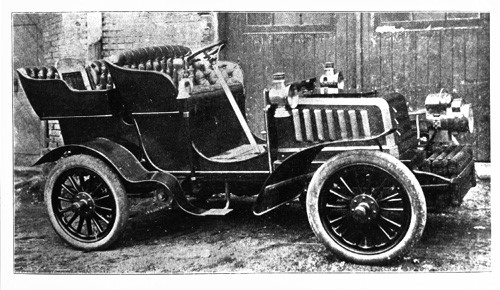
The Ball Tonneau Touring Car in The Horseless Age magazine, 1902. Source: Jack Ball.
Frederic J. Ball was born in Brooklyn, New York, in 1867. After graduating college, he became an apprentice machinist at the shop where his father was a partner, Ball and Jewell. Later, Ball and his father bought out the company and changed the name to G.M. Ball and Son. The company was completely controlled by Frederic Ball by 1898, at which point he changed its name to the New York Gear Works.
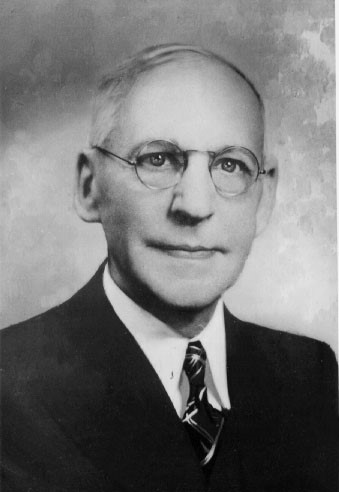
Frederic J. Ball. Source: Jack Ball.
In 1902, Frederic Ball invented what he called the “spur planetary reverse gear,” which had two forward speeds and a reverse gear. An avid seafarer, Ball originally sold these gears to be installed in boats. He then manufactured an automobile he named after himself, the Ball Tonneau Touring Car, with his spur planetary reverse transmission installed. He built six of these Ball cars as one-offs in his garage in Brooklyn, making them the first American-built cars with a reverse gear. On top of that, his gear was efficient and had a low cost of manufacture. Ball patented his reversing gear invention under patent number 671,747 on April 9, 1901, and began selling his cars (he also received subsequent patents in 1904 for the reversing mechanism under patent numbers 749,516 and 749,602).
He received a decent amount of attention for this in the emerging automotive community, even having an article written about his car in the December 17, 1902, issue of The Horseless Age magazine. (Yes, that is the actual name of the magazine. Obviously, car mags had much more whimsical names in the early 20th century.) As such, he soon caught the attention of Henry Ford and John Wanamaker. They approached him with an offer to purchase the rights to his spur planetary reverse gear, but he declined. Soon after this, Frederic’s shop was broken into, and his spur planetary reverse gear plans were stolen.
In 1903 the first Ford Model A cars (an early Model A that is different from the later ’27-’31 car that most people are familiar with) were sold in all Wanamaker stores, and Ball believed that they utilized the function of his mechanism in their transmissions, since it bore striking similarity to the reverse gear that he had designed and patented. After seeing the car, Ball began to surmise that the robbery in his workshop represented the theft of more than a simple set of drawings but instead the theft of his company’s future, and he sued Wanamaker for patent infringement. Unfortunately, Frederic was forced to drop his suit in 1905 due to a lack of funds. However, that same year, he signed two licensing agreements, one from Ford Motor Company and one from Buick Motor Company, allowing use of the spur planetary reverse gear he had devised. According to the agreements, both Ford and Buick were to pay Ball one dollar for every transmission manufactured by the companies containing Ball’s patented improvements.
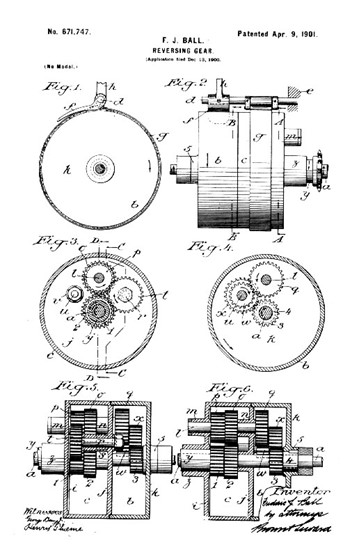
Frederic J. Ball’s patent for his reversing gear.
Unfortunately, according to Jack, his great-grandfather never saw one dollar from either Ford or Buick. The problem was exacerbated after the Ford Motor Company won the infamous Selden patent case. George B. Selden was a patent lawyer and inventor who received a patent for an automobile in 1895. He sold William C. Whitney the rights to his patent in 1899. Then Whitney and Selden collaborated to recoup royalties from other nascent automakers. For a time, they were successful. Eventually, however, Henry Ford and four other car manufacturers contested the patent infringement suit filed by Selden and Whitney.
Their legal protestations were not surprising, as every automaker had to pay a royalty to Selden and Whitney simply because they effectively patented the concept of an automobile. Initially, the court ruled in favor of Selden. However, on appeal, Ford won in 1911 and no longer had to pay royalties to Selden. Ford used his victory in this case to justify not paying the patent rights to other inventors, like Frederic J. Ball.
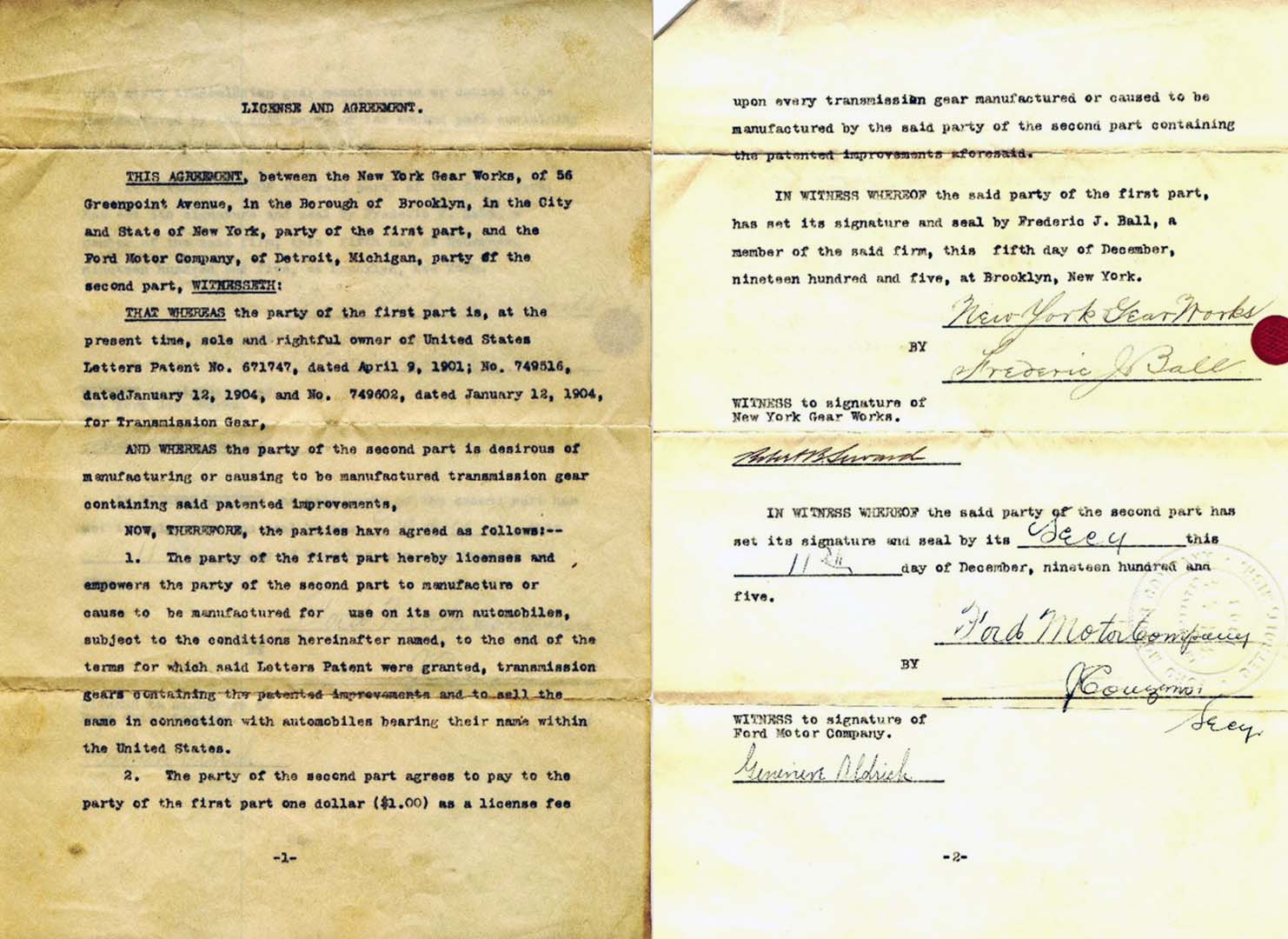
New York Gear Works agreement with the Ford Motor Company, 1905. Source: Jack Ball.
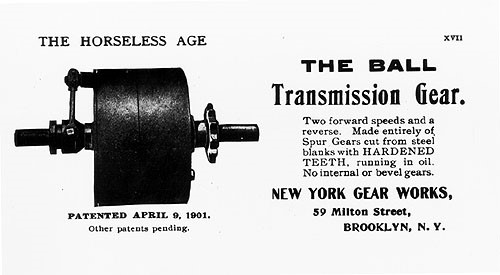
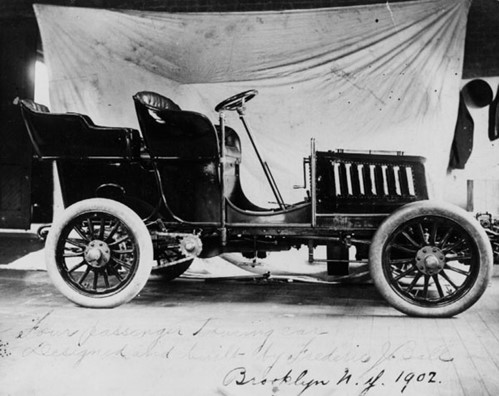
Unfortunately, this letter did not garner a response, and Frederic J. Ball died January 18, 1958, in Paterson, NJ, having never seen a dollar from Ford or Buick. And the six Ball cars that were built? Jack is not aware of the whereabouts of any of them, or if any even survived. He was contacted at one point by someone who claimed to have the transmission from one of the cars, but the lead vanished as quickly as it arrived.
The articles and other content contained on this site may contain links to third party websites. By clicking them, you consent to Dorman’s Website Use Agreement.
Participation in this forum is subject to Dorman’s Website Terms & Conditions. Please read our Comment Policy before commenting.